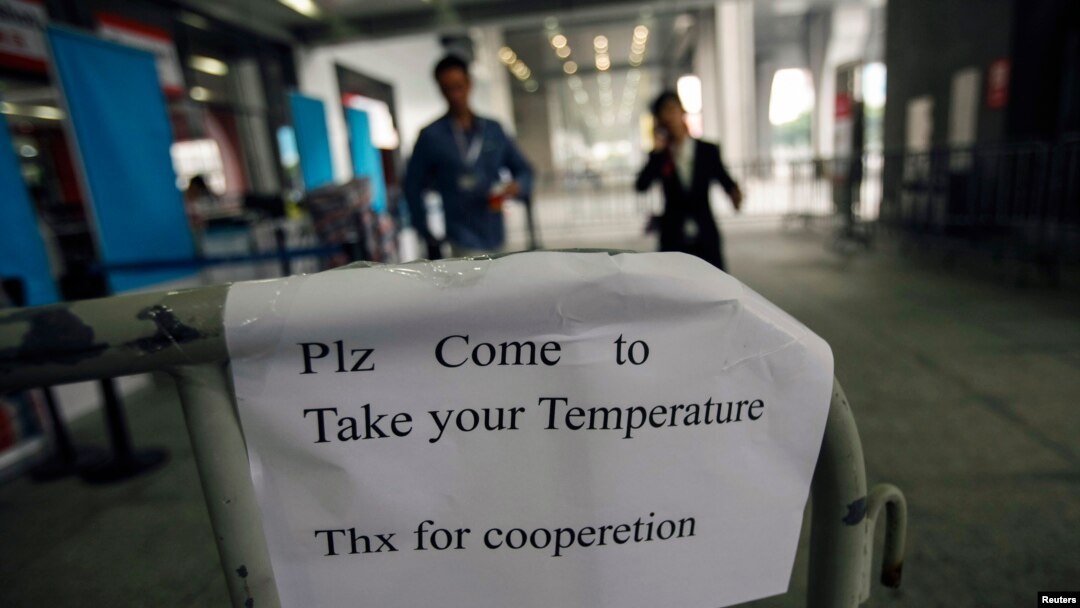Chinese authorities Friday worked to clarify their response to the West African Ebola outbreak at a time when governments around the world are trying to determine the best way to prevent the virus from reaching their shores. In China, there has been limited and at times contradictory information about the measures in place to respond to Ebola.
Last week, China’s foreign ministry said that travelers from West African countries who showed no signs of the virus would be allowed to travel without restriction.
But other government agencies and Chinese media reports have described a different policy.
According to Chinese health authorities and interviews VOA has conducted, anyone visiting from the three Ebola-hit West African countries must self-quarantine for three weeks.
But how the quarantine is implemented is not clear and health officials are refusing to provide more information. Chinese media reports have given only rough details about the program. How authorities are monitoring at-risk individuals around the country also remains unclear, including whether there are quarantines for Chinese health workers returning from West Africa.
In the capital of China’s southern Guangdong Province of Guangzhou, which is the main point of entry for African visitors, the mayor reportedly has required that anyone arriving from the three countries should be given a mobile phone. According to the Southern Metropolis Daily, individuals must keep the phone on at all times for 21 days.
In a news conference Friday in Beijing, the head of the African Affairs Department at China’s Foreign Ministry, Lin Songtian, said healthy visitors from West Africa are welcome to come to China.
Lin said that as far he understands, there is no visa ban toward the three Ebola-hit countries.
Earlier this week the state-run Xinhua news agency reported that Beijing authorities would suggest visitors self-quarantine, indicating that such quarantines would be voluntary. But on Friday, Lin said that anyone coming to the country is required to submit health checks and surveillance by authorities.
Lin added that China is also working with international airlines, requiring them to report anyone on flights bound to China who show symptoms of the disease or are suspected of carrying the disease.
One source tells VOA that two students who recently came to China from Guinea got so frustrated with an imposed self-quarantine in a hotel that they ran away to Guangzhou.
They were later tracked down by authorities and were not released until they finished their quarantine period.
So far, China has yet to see any Ebola cases. There have been some scares, however, and earlier this month, without giving any real details, a health official in Guangdong abruptly announced that 43 individuals, who were suspected to have Ebola, had tested negative.
The number of suspected cases has now risen to 50, according to a report in the China Daily Thursday. The report did not elaborate.


